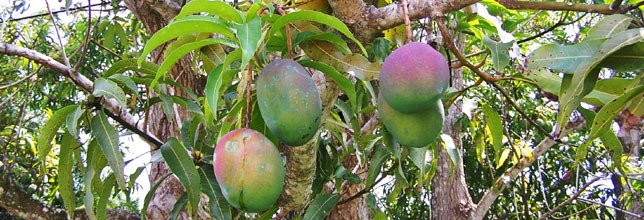
References
Ajila, C.M., L. Jaganmohan Rao, and U.J.S. Prasada Rao. 2010. Characterization of bioactive compounds from raw and ripe Mangifera indica L. peel extracts. Food and Chemical Toxicology 48: 3406-4311.Bally, I. 2006. Magnifera indica (mango). <URL: http://www.agroforestry.net/tti/Mangifera-mango.pdf>. Accessed April 8, 2012.
Budhwar, K. 2002. Romance of the mango: The complete book of the king of fruits. Penguin Books India, New Delhi, India.
Eiadthong, W., T. Hidayat, D. Kusumawaty, and A. Pancoro. 2011. Molecular diversification and phylogeny of Mangifera (Anacardiaceae) in Indonesia and Thailand. Proceeding of the International Conference on Advanced Science, Engineering and Information Technology 2011.
Mango bioactive compounds and related nutraceutical properties: A review. Food Reviews International 25:346-370.
Mango trees: Sustainable food/income. <URL: http://www.changeforindia.org/mango-trees-sustainable-foodincome/>. Accessed April 16, 2012.
The mango: Botany, production, and uses. CAB International, Cambridge, MA, USA.
USDA Natural Resources Conservation Site 2012. <URL: http://plants.usda.gov/java/profile?symbol=MAIN3>. Accessed March 8, 2012.
Follow this link to learn more about the author or return home!